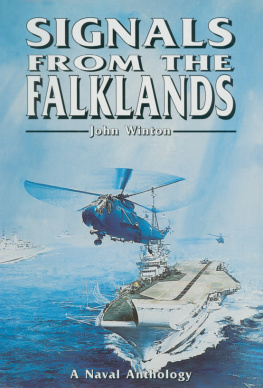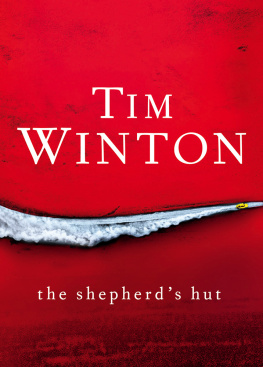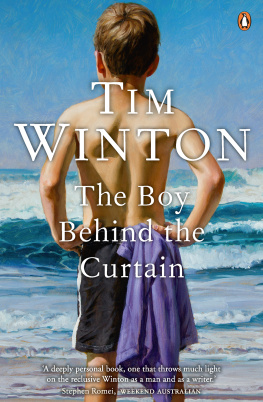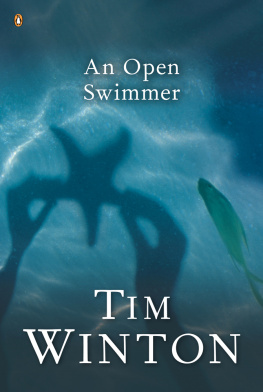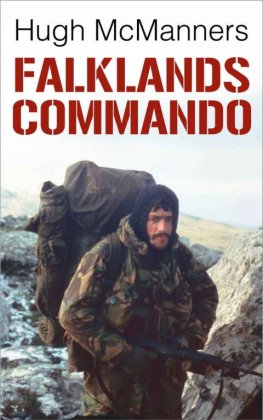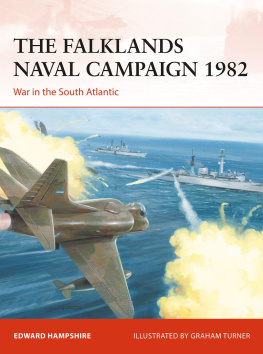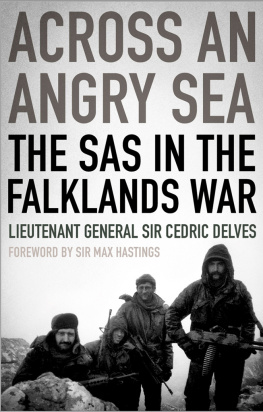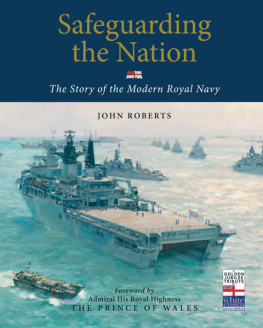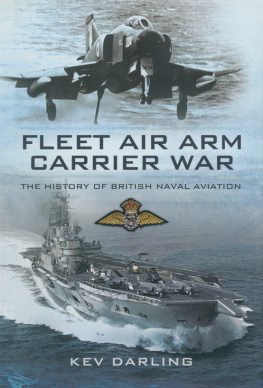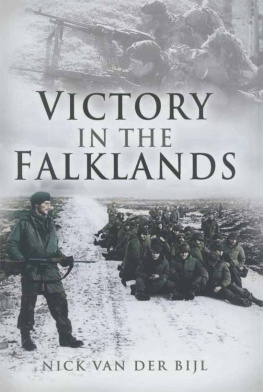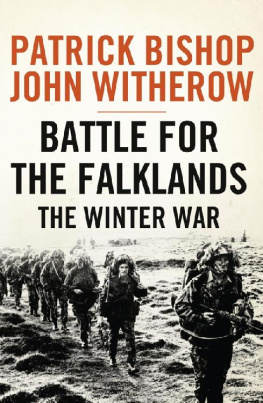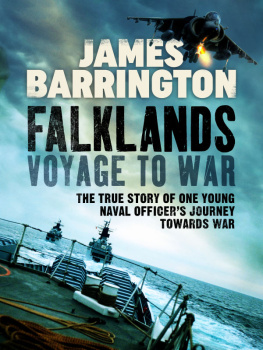SIGNALS FROM THE FALKLANDS
Other works by John Winton:
FICTION
We Joined The Navy
We Saw The Sea
Down The Hatch
Never Go To Sea
All The Nice Girls
HMS Leviathan
The Fighting Temeraire
One Of Our Warships
Good Enough For Nelson
Aircraft Carrier
The Good Ship Venus
A Drowning War
Polaris Fears and Dreams
NON-FICTION
Freedoms Battle: The War at Sea 19391945
The Forgotten Fleet
The Little Wonder: The Story of the Festiniog Railway
Sir Walter Raleigh
Air Power at Sea 19391945
Hurrah For the Life Of A Sailor: Life on the Lower Deck of the Victorian Navy
The Victoria Cross At Sea
War In The Pacific: Pearl Harbor to Tokyo Bay
Sink The Haguro!
Hands To Action Stations!: Naval Poetry and Verse of WW2
Find, Fix And Strike: The Fleet Air Arm at War 19391945
Below The Belt: Novelty, Subterfuge and Surprise in Naval Warfare
Jellicoe
Captains & Kings: The Royal Navy & The Royal Family 19011981
Convoy: The Defence of Sea Trade 18901980
The Death Of The Scharnhorst
Air Power at Sea: 1945 to Today
Warrior: The First and the Last
The Little Wonder: 150 Years of the Festiniog Railway (Revised Edition)
Carrier Glorious: The Life and Death of an Aircraft Carrier
Ultra at Sea
Ultra in the Pacific
The Naval Heritage of Portsmouth
For Those in Peril: Fifty Years of Royal Navy Search and Rescue
SIGNALS FROM
THE FALKLANDS
Compiled and Edited
by
JOHN WINTON
First published in Great Britain in 1995 by
LEO COOPER
190 Shaftesbury Avenue, London WC2H 8JL
an imprint of
Pen & Sword Books Ltd,
47 Church Street,
Barnsley, South Yorkshire S70 2AS
John Winton, 1995
A CIP record for this book is available from the British Library
ISBN 0 85052 429 6
Typeset by Phoenix Typesetting, Ilkley, West Yorkshire
Printed in England by
Redwood Books Ltd.,
Trowbridge, Wilts.
CONTENTS
In spite of all that has been published so far about the Navy in the Falklands War, there has still been very little about the personal experiences of the men and women who went down south.
The Navy has never been noted for its flair for publicity. Whoever coined the phrase The Silent Service has a great deal to answer for. The Navy seems chronically incapable of handling its own publicity with the skill and expertise shown, for example, by the RAF. Again and again during the Falklands War, it seemed to me that chances of giving the Navy a chuck up were being fumbled.
When I read the newspapers and watched TV while the Falklands campaign was going on I realized that, once again, much of the Navys achievement was very probably going to be allowed to go by default.
So, when the ships began to come home, I let it be known as far and wide as I could that I was going to write, or rather compile, a book on the Navys part in the Falklands and with Navy of course I also included the Royal Fleet Auxiliary, the Merchant Navy, the doctors and nurses ashore and in the hospital ship Uganda, and all the Sea Services and I would welcome contributions of any kind, so long as they gave some idea of what life was like down there.
The response showed that I had touched a nerve. I soon accumulated a mass of taped interviews, individual accounts of How I Won The War, personal diaries, ships newspapers, poems, daily orders, signals, statements for probate, reports of proceedings from ships, engine room registers, lectures and presentations to societies, and copies of letters written to wives and girl friends. In the end, I had so much material I have had to make a fairly rigorous selection from it.
This material, virtually all previously unpublished, is the first and main source of this book. By far the greater part dates from the conflict itself, or within a few months of its end, because I wanted to avoid hindsight, and the excuses, embellishments and exaggerations which inevitably come with the passing of time. I did not want people remembering with advantages what feats they did that day the feats they actually did would be quite good enough.
I have also drawn on the Falklands Books some ships companies produced as souvenirs, for the sailors to keep and to give to their families and friends. The books vary in quality and in production. Some were just photocopied A4 sheets stapled together, but HMS Invincible The Falklands Deployment, on the other hand, is an elegant hardback, privately printed for the ship by Eyre & Spottiswoode, Her Majestys Printers.
The contents also vary greatly in quality, but there are many vivid eye-witness accounts of what it was like to have to abandon ship and hope to be picked up, what it meant to come under air attack, to be closed up at Defence Stations, six hours on, six hours off, for weeks on end, to appreciate Mars Bars as the delicacies they became; there is some appropriate doggerel verse, cartoons which hit the nail on the head, scripts of Sods Operas, orders of service held before going into battle, and letters of encouragement from Girl Guide troops in that ships adopted city.
A third source is the small but important amount of Falklands material which has already appeared in publications with a very limited or purely Service circulation, but which I thought was well worth reprinting for a wider readership.
I am very grateful to the contributors and copyright holders, who responded to my appeals for material and whose names appear in the text, who gave me permission to print their work, and to all the others who also responded but whose Falklands dits I had no space to use.
I must also thank the Editors of The Naval Review, Navy News, Flight Deck, The Globe and Laurel, Force 4: The Newsletter of the Royal Fleet Auxiliary, The Supply and Secretariat Newsletter, The Journal of Naval Engineering, and The RN Supply & Transport Service Journal for all their help.
I have made a great effort to trace copyright holders and I apologize for omissions where I have failed.
Due to the pressure of work and other difficulties, this book has taken much longer to complete than I originally intended and expected, but here it is at last: an anthology of personal experience of what it was like to serve at sea during the Falklands War, written by the men and women who were there, with my linking and explanatory commentary.
JOHN WINTON
| AAA | Anti-aircraft armament |
| AAF | Argentinian Air Force |
| AAW | Anti-aircraft warfare |
| AAWC | Anti-Aircraft Warfare Control |
| AER | After Engine Room |
| AMR | Auxiliary Machinery Room |
| AOA | Amphibious Operating Area |
| AS12 | Air-to-Surface missile carried by Wasp helicopters |
| ASW | Anti-submarine warfare |
| Avcat | Kerosene-based aviation fuel |
| AVO | Aviation Officer |
| BAS | British Antarctic Survey |
| CAP | Combat Air Patrol |
| Casevac | Casualty Evacuation, usually by helicopter |
| Chacon | Cargo container |
| CO | Commanding Officer |
| COMAW | Commodore, Amphibious Warfare |
| CPO |

